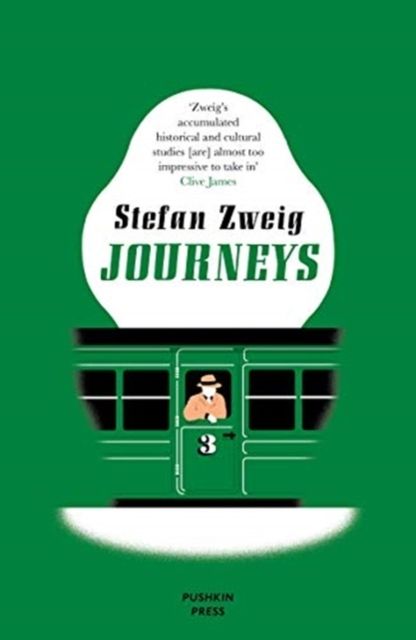Journeys

Editorial Pushkin Press
Fecha de edición marzo 2019 · Edición nº 1
Idioma inglés
EAN 9781782274759
112 páginas
Libro
encuadernado en tapa blanda
Resumen del libro
When I am on a journey, all ties suddenly fall away. I feel myself quite unburdened, disconnected, free - There is something in it marvellously uplifting and invigorating. Whole past epochs suddenly return: nothing is lost, everything still full of inception, enticement.
For the insatiably curious and ardent Europhile Stefan Zweig, travel was both a necessary cultural education and a personal balm for the depression he experienced when rooted in one place for too long. He spent much of his life weaving between the countries of Europe, visiting authors and friends, exploring the continent in the heyday of international rail travel. Comprising a lifetime's observations on Zweig's travels in Europe, this collection can be dipped into or savoured at length, and paints a rich and sensitive picture of Europe before the Second World War.
Biografía del autor
x{0026}lt;P x{0026}lt;B Stefan Zweigx{0026}lt;/B (Viena, 1881 x{0026} x02013; Petrópolis, 1942) fue un destacado escritor, biógrafo y ensayista austríaco, célebre por su estilo psicológico y humanista, que alcanzó una inmensa popularidad en las décadas de 1920 y 1930. Hijo de una familia judía acomodada, estudió filosofía y literatura en Viena, donde publicó sus primeros poemas y se relacionó con la élite cultural de su tiempo. Viajero incansable y firme pacifista, se opuso activamente a la Primera Guerra Mundial, lo que marcó profundamente su obra.x{0026}lt;/P x{0026}lt;P Autor prolífico en diversos géneros, escribió ficciones inolvidables como x{0026}lt;I Carta de una desconocidax{0026}lt;/I , x{0026}lt;I Amokx{0026}lt;/I , x{0026}lt;I La piedad peligrosax{0026}lt;/I y x{0026}lt;I Novela de ajedrezx{0026}lt;/I , así como estudios históricos y biografías literarias sobre figuras como Balzac, Dickens, Dostoyevski, María Antonieta y Fouché. Su obra x{0026}lt;I Momentos estelares de la humanidadx{0026}lt;/I es una de las más representativas de su talento narrativo y visión histórica.x{0026}lt;/P x{0026}lt;P Tras el auge del nazismo y la censura de sus escritos, Zweig se exilió sucesivamente en Inglaterra, Estados Unidos y Brasil. A pesar de su admiración por este último país, el desencanto ante el destino de Europa lo llevó a suicidarse junto a su esposa. Su autobiografía póstuma, x{0026}lt;I El mundo de ayerx{0026}lt;/I , es un emotivo testimonio de la cultura europea perdida. Su legado literario ha inspirado numerosas adaptaciones cinematográficas, incluida x{0026}lt;I El Gran Hotel Budapestx{0026}lt;/I de Wes Anderson, y sigue siendo valorado por su profundidad humanista y su mirada crítica ante los totalitarismos.x{0026}lt;/P








